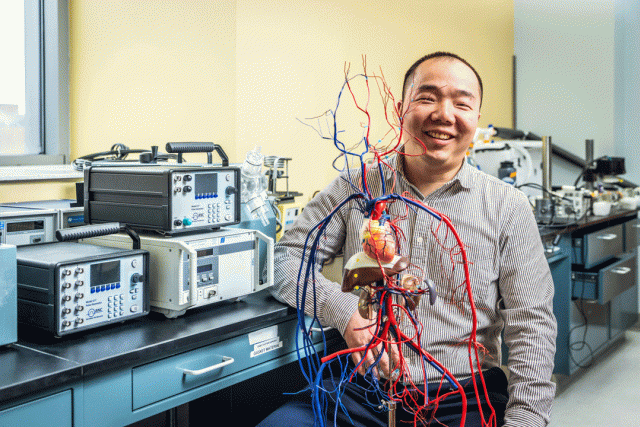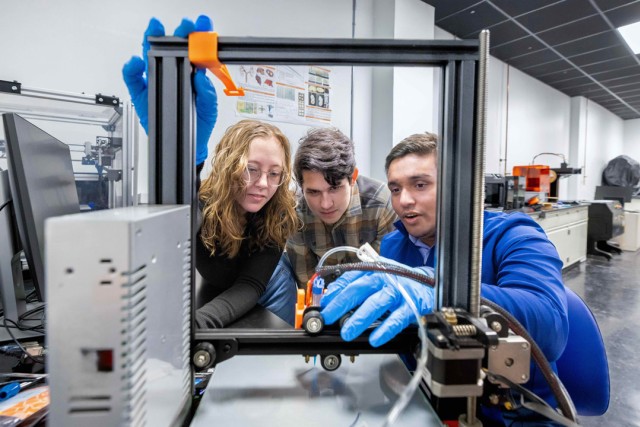RIT researcher receives NIH funding to help design better drugs
Emiliano Brini to study protein-protein interactions with physics-based computational modeling
Rochester Institute of Technology’s Emiliano Brini, assistant professor in the School of Chemistry and Materials Science, has received an award from the National Institutes of Health (NIH) to support his research on building the next generation of drugs.
Brini and his team of students will develop computational tools that can predict the strength of the interaction between two proteins and how drugs will modify this interaction. Physics-based methodologies will quickly and accurately provide such predictions.
Designing a new class of drugs that target the protein-protein interactions at the core of the cell’s ability to function will allow for more effective treatments for cancer, genetic diseases, viral infections, and bacterial infections.
“We need to move toward a new class of drugs,” said Brini. “The drugs we have work, but they can work better. Usually drugs interact with a single protein, but almost every protein interacts with another protein at some point. If we can change this interaction, we have much more control on what the protein does and what the cell does.”
Using physics-based computational models in drug design is a relatively new focus and has allowed research and development to move forward more quickly. Targeting protein-protein interactions is challenging based on numerous factors but has resulted in the discovery of more effective treatments.
“It’s a very complicated problem,” added Brini. “It is a problem that machine learning and artificial intelligence are not there yet to solve, so we need other tools. This is where we come in with physics.”
Brini has been awarded $185,000 from the NIH with more funding anticipated as his work continues over the next few years.



